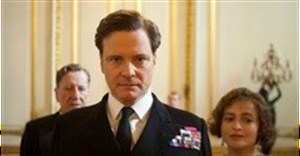
Subscribe & Follow
Jobs
- Communication Assistant Durban
- Head of Content – What’s On, UAE & KSA Dubai
- Tender Specialist Tshwane
- PR and Communications Coordinator Cape Town
- PR and Digital Content Writer Sandton
- Group Account Director - Consumer PR and Influencer Cape Town
- Event Manager - PR Agency Johannesburg, Cape Town or DBN
- Senior Account Director - PR Agency Cape Town, Durban, or Johannesburg
- Group Account Director - Consumer PR and Influencer Cape Town
What makes a leader great... great communication
It's no coincidence that throughout history nearly all of the great world leaders were good speakers - Nelson Mandela, Winston Churchill, John F. Kennedy - to name but a few. Whether you're a president or a manager, your success depends on good communication.
7 tips to make you a great communicator
1. Connect with people - effective communication is more about building relationships than anything else. Communicate with the emphasis on connecting with people and they will respond better to you and your message.
Speak from the heart and use your own language, let your own personality shine through. Make sure your communication is genuine and true and avoid corporate mumbo-jumbo - your team will respect you for it.
2. Build trust - for you to become a great communicator, people must trust you. Being aware of this is the single most important thing that you should keep mind: "If you want to win a man to your cause, first convince him that you are a sincere friend." - Abraham Lincoln
3. Use more than just words - when we communicate we use words, tone of voice and body language to get our message across. The very best messages are those that are synchronised - when they're all giving the same message.
How you look and what you wear speaks volumes about you. People judge you on your appearance before any words are spoken. Make sure you look the part. Pay attention to grooming, style and fit of clothing.

Your look also includes personable qualities - facial expression, good posture, a positive attitude and eye contact, all play an important part.
4. Listen well - it's one of the fundamental skills of success. It's hard to be great or trusted without it.
When you're not listening well to someone you're communicating, "I don't care.
You're not worthy of my attention." Which has to be on the quickest ways to destroy anyone's trust.
Listen with your eyes and your body. Practice patience, empathise and most importantly be present. Avoid taking interruption calls, text messages or emails - it's one of the fastest ways to show you don't really care about them.
5. Be simple, clear and concise - it's always better than complicated and confusing. Simplify your communication and stick to the core point. It also shows that you have respect for your team's time.
Meetings should contain a brief summary and a call to action with clear instructions. By keeping matters short, it also shows that you have a clear understanding of what is being said.
6. Think before you speak - don't force yourself into a conversation just to hear yourself speak. Keep your thoughts under wraps until you have something specific to say, until you understand how to proceed.
Your words are a reflection of who you are. If you speak before you think, you're not considering the words you're saying or the words of the person you should be listening to.
Sometimes the best thing to say is nothing at all.
7. Ask the right questions - you'll get to the heart of effective communication and information exchange. You'll gather better information and learn more; you'll build stronger relationships, manage people more effectively and help others to learn too.
Skilful questioning needs to be matched by careful listening so that you understand what people really mean with their answers. Your body language and tone of voice can also play a part in the answers you get when you ask questions. Your ability to develop effective communication skills accounts for fully 85% of your success - in business and in your personal life.
The good news is, communication is a learned skill. We can all get better at it by learning what great communicators do and practising these skills until they become part of our everyday life.
















